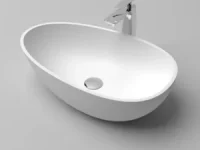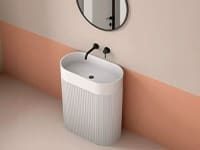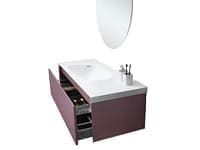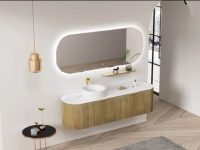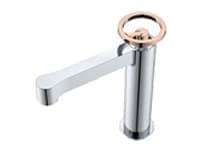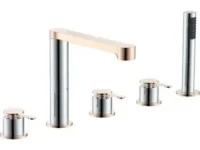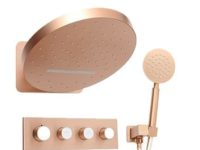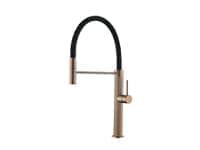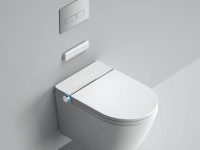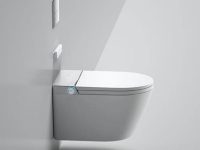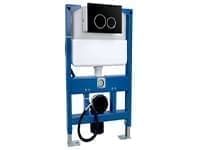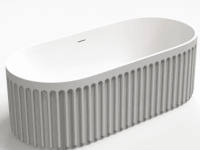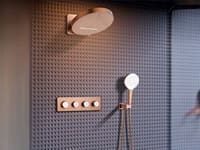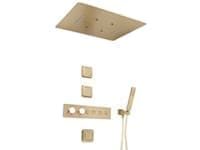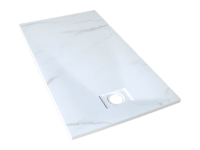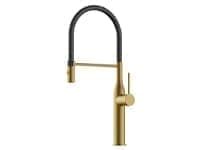Innovation in even the most ordinary parts of daily life regarding technical advancements is present. Today, we are in the era of smart toilets, which are revolutionising our experiences in the bathroom by combining comfort, convenience, and hygiene. The development and benefits of smart toilets, from modest beginnings to future marvels, are a reflection of society’s unwavering quest for luxury and efficiency.

Origins and Early Innovations
In the late 20th century, the inception of smart toilet ideas marked the pioneering steps towards integrating technology into bathroom fixtures. These early endeavours primarily focused on automating flushing mechanisms and introducing modest conveniences like seat warmers. Despite their modesty, these innovations laid the groundwork for subsequent advancements. Over time, technological evolution has seen the incorporation of sophisticated features such as bidet functions, adjustable water pressure, self-cleaning capabilities, and even integration with smart home systems, transforming the bathroom into a space where cutting-edge technology intersects with everyday comfort and hygiene.
The Rise of High-Tech Smart Toilet Features
The capabilities of smart toilets increased along with the advancement of technology. Sensors and touchless controls were included to reduce the spread of germs and address hygiene issues in common environments. Previously thought to be a luxury found only in high-end hotels and homes, bidet features have increased and provide consumers with a more comprehensive and hygienic cleaning experience.
Furthermore, the introduction of adjustable settings lets consumers customise everything about their toilet experience, from nozzle placement to water pressure and temperature. These elements improve comfort and help with water conservation initiatives by maximising use.

Environmental Sustainability
Smart, high-tech toilets offer advantages for health and comfort, but they also support environmental sustainability initiatives. Cutting-edge water-saving innovations, like dual-flush systems and effective flushing mechanisms, contribute to water conservation without sacrificing functionality.
Furthermore, some smart toilets include integrated filtering systems that clean wastewater before it is recycled for non-potable uses or released into the sewage system. These toilets are especially important in encouraging eco-friendly practices because they minimise water waste and ease the burden on municipal infrastructure.
Integration with Smart Homes
As the smart home ecosystem grows, so does the advancement of smart toilets, which allow for easy interaction with other connected devices. Voice-activated controls further improve accessibility and convenience by enabling hands-free toilet operation. These controls are compatible with virtual assistants such as Google Assistant and Amazon Alexa.
In addition, by establishing communication with other smart equipment in the house, such as lighting controls and thermostats, smart toilets can customise their comfort settings according to individual preferences and daily schedules. This interconnection streamlines the user experience and creates the framework for more intelligent and adaptable living environments.
Challenges and Considerations
Smart toilets have many advantages, but they also have drawbacks. Robust encryption mechanisms and clear privacy policies are necessary to address privacy concerns related to data security and the possible exploitation of health information.
Furthermore, the cost and ease of use of smart toilets continue to be obstacles to their widespread adoption, especially in areas where access to cutting-edge technology is restricted. For everyone to benefit from improved comfort and hygiene, manufacturers must work to make these advancements more accessible and cheaper.
The Future of Smart Toilets
There are countless possibilities for smart, modern toilets in the future since technology advances so quickly. Future smart toilets promise to completely change how we think about personal hygiene and wellness with features like immersive augmented reality experiences, AI-powered diagnostics, and personalised health recommendations.
Furthermore, eco-friendly toilets that minimise environmental effects without losing functionality or aesthetics will be possible due to advances in materials science and sustainable design. The future of smart toilets is set to bring in a new era of comfort, convenience, and well-being for people worldwide by utilising innovation and teamwork.
Wrap Up
In summary, developing smart toilets redefines our ideas of comfort and hygiene in the contemporary era by bringing technology, sustainability, and wellness together. Smart toilets have advanced significantly and are still pushing the frontier of innovation, starting as simple automated fixtures and working their way up to complex health monitoring systems. The possibilities are endless as we look to the future, providing exciting opportunities for a more interconnected, effective, and sustainable world. If you want smart toilets in the UK, check out RNK London to fulfil all your bathroom needs.




